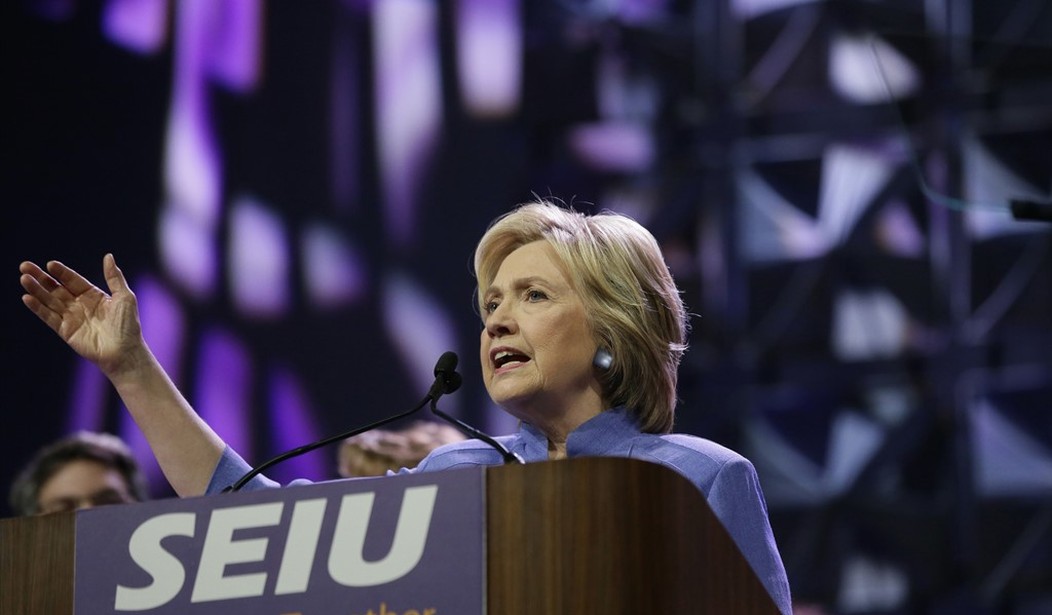The opinions expressed in guest op-eds are those of the writer and do not necessarily represent the views of RedState.com.
Imagine someone posing as you walking into a store, purchasing an expensive item, and paying for it with a check on which he scribbles a signature that looks nothing like yours.
In the real world, that simply couldn’t happen because the sales clerk would refuse to accept a check without proper identification, your bank wouldn’t cash such an obvious forgery and, even if it did, the store would feel duty-bound to offer a refund once it discovered it had wrongfully taken your money.
No self-respecting thief would be so reckless as to even contemplate such a sloppy fraud, let alone expect to get away with it.
But in at least a dozen cases in various stages of litigation, public-sector unions on America’s west coast have refused to honor the lawful request of government employees to discontinue their dues deductions based on membership agreements everyone involved agrees are bogus.
Three such cases were appealed to the U.S. Supreme Court in December alone.
In the first, a Spokane, Wash. homecare provider named Cindy Ochoa, argues the state completely failed to provide her procedural due process protections before twice taking her lawfully earned wages and giving her money to Service Employees International Union (SEIU) 775, which represents Medicaid-reimbursed caregivers in Washington.
Ochoa opted out of SEIU 775 shortly after the U.S. Supreme Court’s 2014 ruling in Harris v. Quinn struck down mandatory dues and fees for Medicaid-reimbursed caregivers and childcare providers.
However, SEIU began garnishing her wages again in 2017, after one of the union’s arm twisters had paid Ochoa a visit a year before to coerce her back into the fold.
Once again, she refused to sign. Unfazed, the union rep simply forged her signature on a membership card, which prompted the state of Washington to once again commence deducting dues from her paychecks and sending them over to SEIU 775.
Under well-established First Amendment law, diverting a percentage of Ochoa’s wages to the union — whose actions, by their very nature, are highly political — amounts to compelled speech, causing Ochoa irreparable harm.
The other two forgery cases — Zielinski v. SEIU 503 and Wright v. SEIU 503 — were combined because both involve Oregon government employees whose signatures were forged on membership documents on behalf of the state’s largest public-sector union.
SEIU 503 agreed to terminate both employees’ memberships but brazenly continued deducting dues from their hard-earned paychecks. Shockingly, the 9th Circuit Court of Appeals saw no problem with this arrangement and refused to stop the union’s shady practices, absolving the state of blame in a twisted pretzel sort of reasoning that it relied on information provided by the union to determine whose paycheck to deduct dues from, then concluded SEIU 503 couldn’t be sanctioned, either, because it isn’t a “state actor.”
In essence, the decision encourages the unions to go right on forging people’s signatures and confiscating their money on false pretenses.
Mind you, both SEIU 775 in Washington and SEIU 503 in Oregon have been found to have engaged in enough forgeries that Freedom Foundation has filed RICO suits against both unions, and those lawsuits are also making their way up the 9th Circuit pipeline.
In the wake of both Harris and Janus, government employee unions began looking for ways to prevent millions of members all over the country from opting out. When we see similar unions in similar situations all resorting to the same criminal behavior, it’s no coincidence. It’s a conscious, calculated pattern, and it shows just how desperate they are.
This is a systemic problem begging for the attention of the Supreme Court.














Join the conversation as a VIP Member